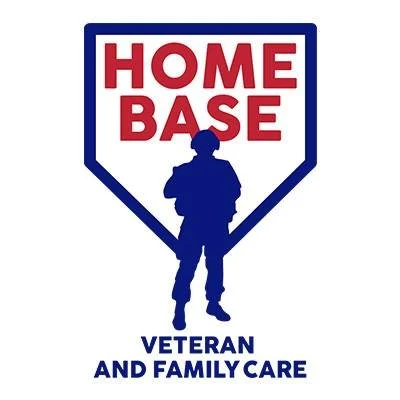Fitness & Recreation Resources
This page includes gaming and sports events, information, and directories for community resources, and information about Home Base programs; upcoming fitness/outdoor activities and retreat/travel opportunities; VA sports & recreation programs; Space-A travel/lodging; and community strategies for suicide prevention.
Resource Network Directory
The Gaming and Recreation Resource Network brings together organizations, clinicians, and individuals who support the wellness of the veteran community and create a sense of belonging and a social support system through gaming, fitness, and other recreational activities. We strive to increase veterans’ access to recreational activities and communities.
New England Adventure Series
Home Base’s New England Adventure Series events are open to veterans, service members, military families, and Families of the Fallen. Participants may explore a new sport, meet other military families, and learn more about the clinical services, education and research offered by Home Base.
Past activities have included skiing, skating, museum visits, sporting events and more. They are open to both adaptive and able-bodied participants.
Fitness & Outdoor Activities
Retreat & Travel Opportunities
VA Sports & Recreation Therapy Programs
Recreation Therapy (RT) is a direct-care interdisciplinary service under the Office of Rehabilitation & Prosthetic Services. VA-enrolled veterans may access RT services at VA facilities through consultation/referral from their primary care provider or another provider.
RT provides evidence-based clinical treatment services intended to restore the health of veterans with injuries, chronic illnesses, or disabling conditions resulting in diminished physical, cognitive, emotional, psychosocial, or leisure capabilities. Click here to access the VA’s Fact Sheet.
RT offers services that align with expert clinical judgment, the best available research evidence, and the mission, aspiration, purpose, goals, references, and life pursuits of the veterans in collaboration with other VHA services and community partner organizations.
-
VA defines Community Reintegration (CR) as a treatment modality, training tool, and protocol within the RT/CAT service line “to ensure a veteran’s safe integration with the least restrictive environment.” CR protocols may take place outside the predictable environment of the VA medical facility.
RT’s community reintegration program is available to all VA enrollees who need it. An RT/CAT provider must indicate whether a particular intervention will benefit the veteran for a therapeutic purpose contained within their treatment plan.
Like other RT/CAT interventions, including adaptive sports and “leisure education,” veterans must receive a referral from their VA provider.
RT/CAT team members also provide veterans with Community Reintegration Training to improve independent functioning impaired by illness or injury if it is expected to be helpful.
One purpose of community reintegration interventions is to assess a veteran’s ability to manage in community-based settings through an experiential process / community reintegration method. Veterans’ individual needs determine the purpose and setting of individualized community reintegration plans.
-
The mission of the National Veterans Sports Programs and Special Events Office (NVSP&SE) is to provide opportunities for veterans to improve their independence, well-being, and quality of life through adaptive sports and therapeutic arts programs.
Learn more about the NVSP&SE office in the NVSP&SE Fact Sheet and at @Sports4Vets.
-
The Adaptive Sports Grant Program is facilitated and managed by the National Veterans Sports Programs and Special Events Office (NVSP&SE). VA awards grants to qualifying organizations to plan, develop, manage, and implement programs to provide adaptive sports opportunities for disabled Veterans and disabled members of the Armed Forces as authorized under 38 United States Code 521A.
-
The VA National Veterans Sports Programs and Special Events Office (NVSP&SE) provides a monthly training allowance for veterans with disabilities who are training in Paralympic sports and veterans with disabilities who are selected for or competing with the national Olympic Team, as authorized under 38 U.S.C. 322(d) and 38 C.F.R. Part 76. The monthly allowance rate for an athlete approved for monetary assistance is the same as the 38 U.S.C. Chapter 31 VR&E rate.
-
Facility points of contact for local VA RT/CAT programs are listed below by healthcare system:
VA Bedford: Andrew J. Geddry, Supervisory Recreation Therapist (781) 687-3237
VA Central Western Massachusetts: Donna Hayes, Lead Recreation Therapist (413) 584-4040 x2350
VA Boston: Jeffrey Lewis, Supervisory Recreation Therapist (774) 826-3625
-
What Care is Offered by the VA Recreation Therapy Service Line
VA facility directors ensure facilities provide RT services based on enrolled veterans’ needs, including by supporting efforts to increase access for all veterans who demonstrate a need and integrating RT therapists into healthcare teams.
Facility RT supervisors collaborate with community partners and VA service lines to ensure all eligible veterans have easy access to state-of-the-art services and to make needed services available to all referred veterans, delivering individualized, evidence-based services focused on outcomes.
As with most services offered within the VA, veterans must receive a referral from their VA provider to participate in RT programs. This requires that both veterans and providers across all VA services be aware of the nature and availability of RT/CAT services and programs.
The Chief Patient Care Services Officer, Rehabilitation & Prosthetic Services, Office of Patient Care Services is responsible for the content of VHA Directive 1172.05.
VHA Directives supersede other national, VISN-level, and facility-level policies or memos issued to the extent they are in conflict. Directives articulate the reason for issue and provide key definitions; background for the policy and related authorities; exemptions; and the Offices and individuals responsible for its implementation, training, and oversight.
What is Included in the VA Medical Benefits Package
In general, the entire VA medical benefits package is available to all VA enrolled veterans. Specific care must provided when it is determined by a VA provider that the care aligns with generally accepted practice standards and will promote, preserve, or restore the health of a particular veteran.
Care preserves health if it maintains a veteran’s current quality of life or daily functioning, prevents disease progression, cures disease, or extends the veteran’s life span.
Care promotes health if it enhances a veteran’s quality of life or daily functioning, prevents future disease, or identifies a predisposition for a condition or early disease onset which can be ameliorated to any extent through monitoring or early diagnosis and treatment.
Care restores health if it restores a veteran’s quality of life or daily functioning lost due to illness or injury.
Military Space-A Travel
Space Available (Space A) flights are available for eligible service members and their families, retirees, and veterans with a 100% permanent and total service-connected disability. Click here to sign up and submit your information and visit Air Mobility Command’s website for more information and a complete Passenger Terminal Directory.
Massachusetts: Space A flights are offered from Westover ARB in Chicopee. Hanscom AFB in Bedford currently is not offering Space A flights.
New England: Space A flights are offered from Bangor ANGB in Maine, Pease ANGB in New Hampshire, and Bradley Airport in Connecticut.
DoD Lodging is also available on a Space A basis at Air Force Inns, Army Lodging, Navy Gateway Inns & Suites, Inns of the Corps, and the Navy Lodge and Marine Lodge.
Community-Based Suicide Prevention
In November 2023, the U.S. Department of Health and Human Services issued a Call to Action to catalyze efforts at the community level to build cross-sector partnerships to respond to the “critical need to develop well-coordinated systems of health and social care to better address social needs that can impact health.”
The call is a companion to the U.S. Playbook to Address Social Determinants of Health and highlights the role of community care hubs in facilitating community-based partnerships across sectors to develop and sustain the community-based infrastructure that is necessary to improve coordination between health and social care providers.
The Center for Disease Control’s Strategies for Communities support a public health approach to suicide prevention that uses data to drive decision-making; implements and evaluates multiple prevention strategies to enhance resilience and improve well-being based on the best available evidence; and works to prevent people from becoming suicidal.



